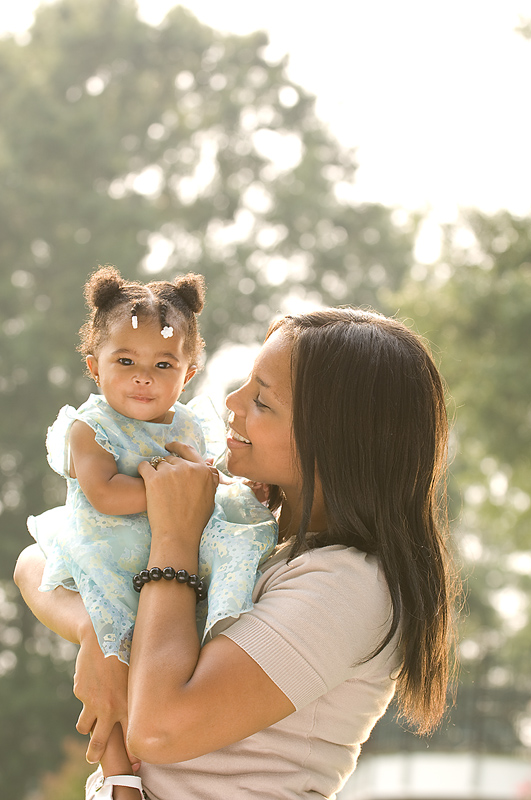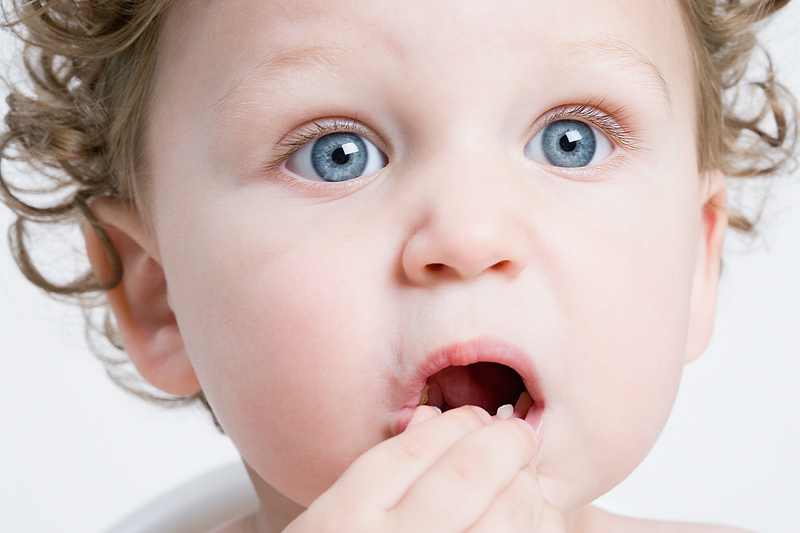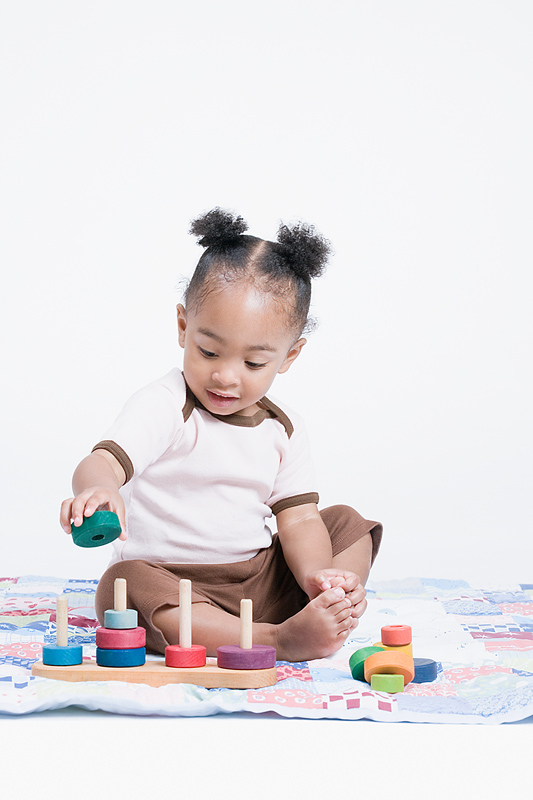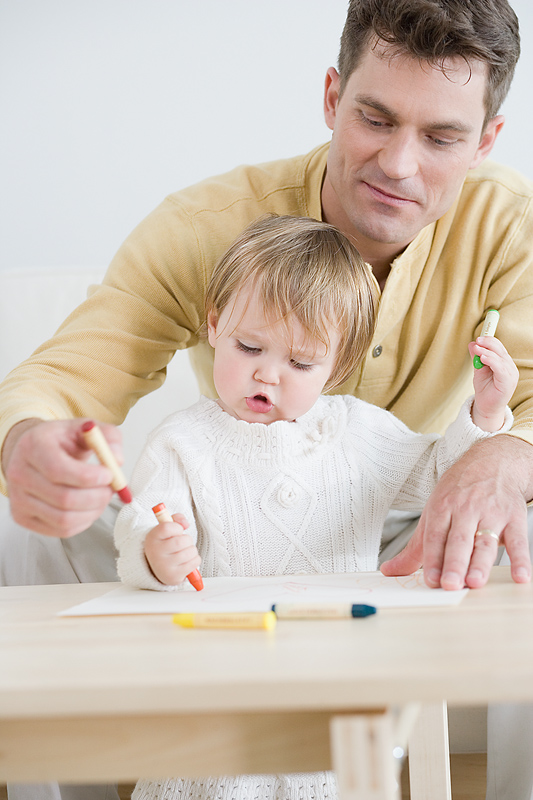 By guiding your child’s simple, everyday activities, you are providing the building blocks to help your child grow up healthy and ready for success.
By guiding your child’s simple, everyday activities, you are providing the building blocks to help your child grow up healthy and ready for success.
Guiding and caring for your toddler will be challenging and exciting. She’ll need attention and help from you. You’ll need a sense of humor, some time for yourself, and lots of common sense.

Play is the way children learn. They love to play with their parents and other caring adults. Here are some simple rules of play:
- Watch. Watch your child and observe his interests and his skill level. You are learning about how he plays.
- Let your child lead. Join in and play at your child’s level.
- If you try to teach too much too fast, your child might get upset.
- Be accepting. Ask your child to tell you what he’s doing, and say something good about it. Show him how to do something slightly more difficult. After playing the same games many times, you might show him something a little bit harder to play. If your child can put together a two-piece puzzle, try one with three pieces. If your child likes building with blocks, you might show him how to combine block play with toy animals.
- Watch again. Every now and then, stop playing and just watch your child play. Watch how he explores his new activity. After your child learns to do something new by himself, you can join in and suggest another new activity. Remember, your child’s attention span is very short. When he decides to stop playing, let him.
Building a tower teaches balance.
How to Play
- Sit on the floor or at the table by your child.
- Place blocks in a pile in front of you and your child.
- Build a tower with two or three of the blocks.
- Don’t knock down the tower. Take it down, one block at a time.
- Ask your child to make another tower.
- If your child doesn’t start to make a tower, hand the child a block and say, “See, we can put one on top of the other.”
- When your child puts one block on top of another say, “You can do it.”
- If the tower falls, don’t make a big thing out of it.
Some children cannot do this until they are older. Don’t worry if your child needs more time or more practice. Be patient and helpful. Stop the game before your child gets bored or upset.
Weaning from bottle or breast is a slow process. Most babies aren’t ready to give up the bottle or breast one day and begin drinking from a cup the next.
Give milk in a cup at mealtimes. Your child will be drinking less milk because she will be eating more solid food. With your doctor’s okay, she is old enough to drink cow’s milk — the regular milk at the store. The calcium in milk helps build strong bones and teeth. Remember to give her whole milk, not low fat or skim milk, until she is 2 years old. Her brain needs the extra fat in whole milk to build and protect brain cells. She might drink 2 or 3 cups of milk every day.
Praise her as she takes this big step! Say, “You’re doing such a good job drinking from the cup!”
Keep the bottle out of bed. Some children may still want the bottle or breast when they wake up, or when they go to sleep. It’s OK to give it as long as your baby doesn’t go to sleep sucking on a bottle. Sucking on a bottle all night can damage your baby’s teeth.
After a while, your child will forget about the bottle or breast. Don’t offer it. Let your child ask for it and then give it only if she really seems to need it. See if she will settle for something else to drink instead. If you let your child carry a bottle around during the day, it will be harder for her to give it up. Give her a toy to carry instead.
Don’t offer fruit drinks, soft drinks, or fruit punches to your child. These drinks are not nutritious. They are mostly sugar and water. When your child is thirsty, offer her tap water or milk in a cup. Give your child whole fruits like apples and oranges instead of juice. Fruits are more nutritious and have more fiber.
Some toddlers drink from a bottle longer than others. Be patient. Don’t force your child to give up the bottle or breast before she seems ready.
Watching television does not give your child the exercise he needs. It does not give him a chance to explore or to play.
- Television is not a good babysitter. If you need some time for yourself, or need time to talk on the phone, put your child next to you with some toys.
- Talking with real people helps toddlers learn. The television makes it hard for your little one to talk to you and hear you. This can delay important language skills.
- Turn it off! Experts agree that it is not good for children under 2 years old to be watching any television at all.
 By guiding your child’s simple, everyday activities, you are providing the building blocks to help your child grow up healthy and ready for success.
By guiding your child’s simple, everyday activities, you are providing the building blocks to help your child grow up healthy and ready for success.


